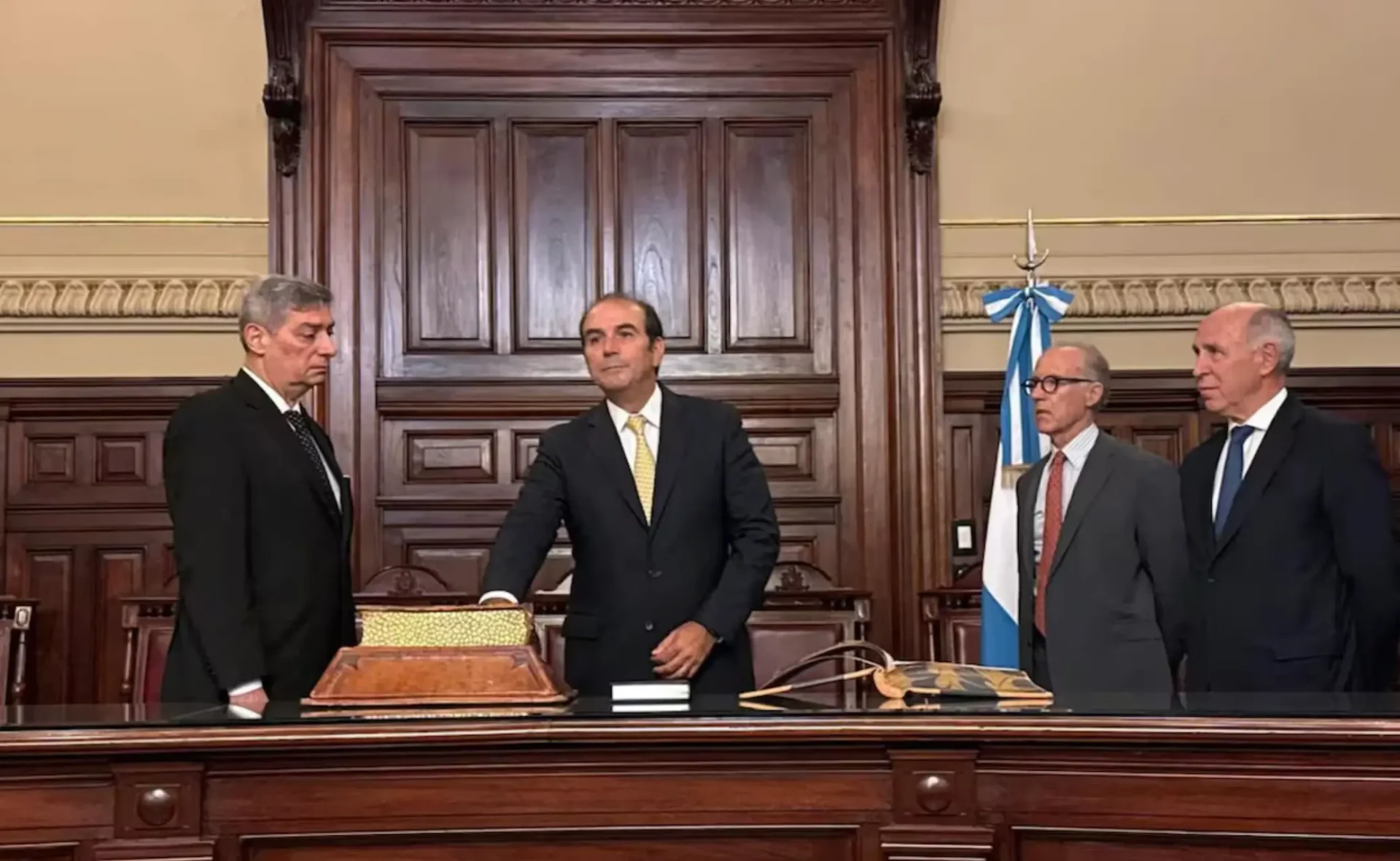Javier Milei, the president of Argentina, gained notoriety through the image of a chainsaw. Initially, he intended to “cut down” the Argentine state, his declared enemy. However, the chainsaw is now being used against democracy. On February 25, two Supreme Court justices, Ariel Lijo and Manuel García-Mansilla, were appointed by decree, raising concerns about the legitimacy and independence of the country’s judiciary.
The process for selecting Supreme Court justices, as established by the National Constitution, requires candidates to be proposed by the Executive Branch and then approved by the Senate with a two-thirds quorum. This procedure includes a stage for public objections and comments, as per Decree 222/03, aimed at increasing transparency and citizen participation. The Court, which should have five justices, currently has only three due to retirements and resignations.
Milei’s recent decision to appoint Lijo and García-Mansilla through Decree 137/2025 bypasses this legislative process, threatening the separation of powers and the Court’s independence. Appointments by decree are temporary, precarious, and typically made during congressional recesses as a way to circumvent the president’s lack of political support—Milei does not have the necessary votes in the Senate to approve his nominations. The opposition party, Unión por la Patria, holds a majority in the Senate and could block these appointments.
Beyond undermining the Court’s credibility, Milei’s action is considered a violation of judicial independence and a step backward in gender equality, as he appointed only men, ignoring the historical underrepresentation of women in the Court. In its history, only three women have served on the Supreme Court, compared to 104 men. Argentina is now the only country in Ibero-America without female representation in its highest court.
Criticism has intensified over claims that the appointments are unconstitutional and could render any rulings issued by the new justices null and void. More than 30 civil society organizations have expressed concern over the erosion of judicial legitimacy and institutional quality, emphasizing that building consensus and respecting the separation of powers are fundamental to democracy. The current situation, marked by widespread public distrust in the judiciary, highlights the urgent need to restore legality in the judicial appointment process.
Former Supreme Court Justice Eugenio Zaffaroni called the recent appointments unconstitutional, predicting serious legal problems if these justices sign rulings, which would be null and constitute a usurpation of authority. Retired Justice Juan Carlos Maqueda also expressed his dismay, calling the president’s decision—just three days before the opening of the regular congressional session—”absolutely regrettable.” Maqueda pointed out that the historical context that justified decree-based appointments in 1860, when Argentina was sparsely populated, is vastly different from today.
The situation becomes even more complicated due to the fact that the new minister, García-Mansilla, had previously expressed his opposition to appointments made by decree. Despite critical voices, many supporters have chosen to remain silent, fearing association with a controversial presidential maneuver, particularly regarding the widely questioned appointment of Ariel Lijo. Observers warn that this strategy allows President Milei to wait for the results of the 2025 legislative elections, aiming to strengthen his base in the Senate to reintroduce nominations through the regular process. The current president of the Court, Horacio Rosatti, stated that the Court itself will assess the constitutionality of the decree, and legal actions against it are already underway.
The familiar figure
Ariel Lijo, one of the appointees, is a prominent federal judge known for handling corruption cases. However, he has a controversial track record, with 34 disciplinary complaints filed against him, though none have resulted in convictions. Lijo, who has ties to influential political figures, defended his candidacy in an eight-hour Senate hearing in 2024, where he faced significant opposition. His appointment has been widely criticized, even by Milei’s allies, including Vice President Victoria Villarruel.
The U.S. Chamber of Commerce in Argentina and the Buenos Aires Bar Association have voiced concerns over the economic implications of Lijo’s appointment, given his history of questionable conduct. Legal experts and constitutional scholars have also opposed the nominations, calling them irregular and potentially destabilizing for the country’s institutions.
Currently, Lijo’s situation remains uncertain. Since his appointment is temporary, he must resign from his position as a federal judge, per a ruling by the Supreme Court in early March. He has yet to step down, reportedly preferring to go through the regular nomination process with Senate approval.
The unknown candidate
The appointment of Manuel José García-Mansilla, replacing Justice Juan Carlos Maqueda—who will turn 75 in December 2024—has also raised concerns about the legitimacy of the process. In March 2024, Milei nominated him for the Supreme Court, but García-Mansilla failed to secure the nine committee signatures needed to move forward to a full Senate vote. Ignoring this requirement, Milei appointed him via Decree 137/2025 on February 25, 2025. The Supreme Court, arguing that García-Mansilla met the constitutional qualifications, swore him in during a private ceremony two days later. However, several organizations have taken legal action seeking to annul the appointment.
García-Mansilla has an academic background, holding a doctorate in law, serving as the Dean of the Law School at Universidad Austral, and teaching constitutional law. In the private sector, he has represented the energy industry. He is described as ultraconservative on social issues and economically liberal, aligning with the current government’s ideology. His opposition to human rights treaties and activism against abortion rights illustrate his positions.
Historically, when former president Mauricio Macri attempted to appoint justices by decree in 2015, strong opposition forced him to reverse the decision. In contrast, Milei has governed through controversial decrees and, amid the “Criptogate” scandal, has sought to consolidate his power within the judiciary, sparking concerns over democratic backsliding in Argentina.
*Machine translation proofread by Janaína da Silva.












